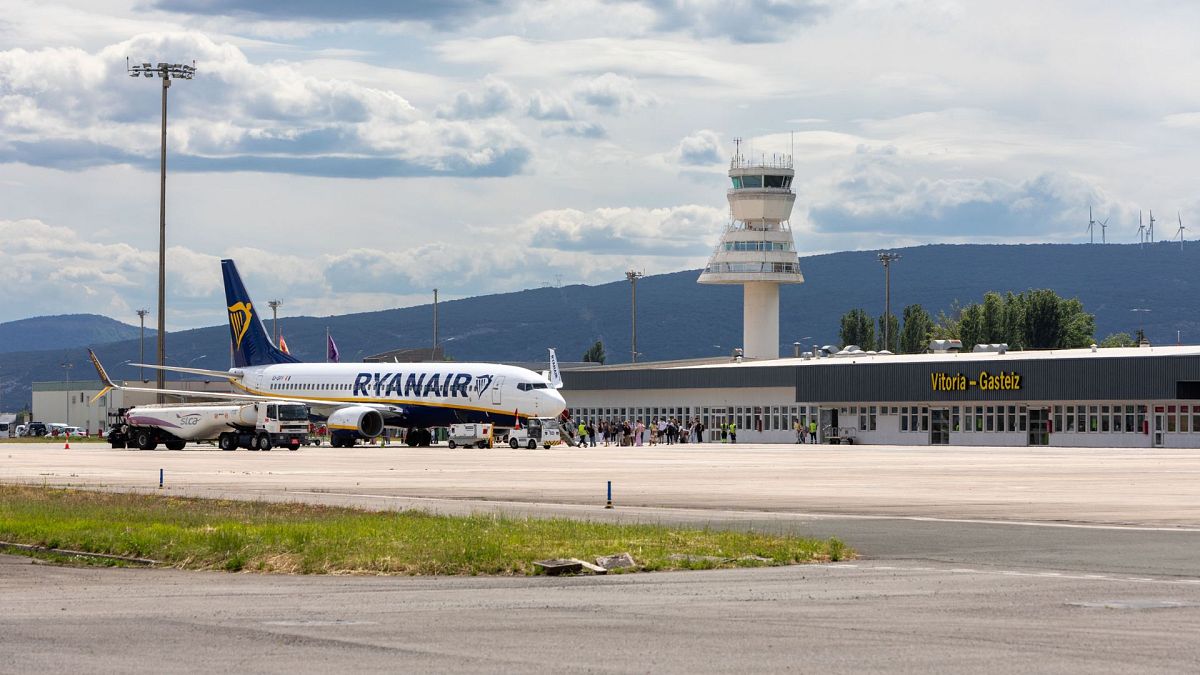Travel
Spanish airports accuse Ryanair of ‘blackmail’ as airline cuts flights

Impact of Ryanair’s Service Reductions on Spanish Regional Airports
The Main Conflict: Ryanair vs. Aena
This summer, travelers in Spain will face fewer low-cost flight options as Ryanair, one of the world’s largest budget airlines, drastically reduces its operations at several regional airports. The airline has announced the removal of 800,000 seats from the Spanish market, accounting for 18% of its total operations in the country. This move will affect seven regional airports, with some losing as little as 5% of their Ryanair services, while others, like Jerez and Valladolid, will see the airline exit entirely. Ryanair blames the decision on what it calls “excessive” fees imposed by Aena, the Spanish airport operator. However, Aena has fired back, accusing Ryanair of using “blackmail” and aggressive tactics to avoid paying fair charges for airport access.
Affected Airports and the Regional Impact
The airports most affected by Ryanair’s decision are primarily regional ones. Jerez and Valladolid will lose all Ryanair services, while Vigo will see a 61% reduction in flights. Santiago will lose one aircraft from its base, resulting in a 28% capacity decrease. Smaller reductions will also impact Zaragoza, Asturias, and Santander. Aena has pointed out that even after Ryanair’s exit, most of these airports will still have alternative operators providing limited services. For example, Valladolid will retain Binter Canarias’ twice-weekly flights to Gran Canaria, while Jerez will continue to have connections to major cities like Madrid and Barcelona through other carriers.
However, the loss of Ryanair’s flights is expected to significantly affect regional connectivity and tourism. Eddie Wilson, CEO of Ryanair, argues that Aena’s fees and lack of growth incentives are undermining Spain’s regional airports. He claims that the airline has no choice but to reallocate its aircraft to more competitive markets in Europe.
The Dispute Over Airport Fees
At the heart of the conflict is a disagreement over airport charges. Aena insists that its fees are competitive, with the average charge per passenger frozen at €10.35 since 2024. The airport operator has even introduced incentives to encourage growth at smaller regional airports, offering discounts for airlines that exceed 2023 passenger levels. Aena claims this initiative would reduce Ryanair’s per-passenger fees to just €2.
Ryanair, however, disputes these claims, arguing that the fees are still too high and are deterring airlines from operating profitably at regional airports. The airline has long been critical of what it perceives as unfair charges, and this latest dispute has escalated tensions between the two parties.
The Political dimension: Ryanair’s Clash with the Spanish Government
The conflict took a political turn when Ryanair CEO Michael O’Leary criticized Spain’s consumer rights minister, Pablo Bustinduy, over a November 2024 fine imposed on several airlines, including Ryanair, for “abusive practices” such as charging passengers for carry-on luggage. Ryanair received the largest penalty of €107.8 million. O’Leary labeled Bustinduy a “crazy communist minister” for targeting airlines that “have no choice but to restrict carry-on bags.”
Bustinduy responded defiantly, stating that no amount of pressure or insults would deter him from protecting consumers’ rights. The public spat highlights the broader tensions between Ryanair and Spanish authorities, with Aena accusing the airline of using aggressive tactics to avoid paying its fair share for airport services.
Are Airport Fees Hampering Growth?
The question of whether airport fees are stifling growth in Spain’s aviation sector remains contentious. Aena argues that its fees are among the lowest in Europe and that Ryanair’s claims of exorbitant charges are unfounded. Airport fees in Europe increased by just 13.6% in 2024, according to the Airports Council International (ACI), while airlines have faced much steeper cost increases due to inflation.
However, Ryanair maintains that the fees are a significant burden, particularly for regional airports that rely heavily on low-cost carriers to maintain connectivity. The airline’s decision to reduce services in Spain is part of a broader strategy to focus on more profitable routes in other European markets.
The Broader Implications and Ongoing Conflict
Despite the cuts, Ryanair’s operations in Spain are still growing overall, with a 5% increase in flights planned for 2025. However, this growth is concentrated at major tourist hubs like Madrid and Barcelona, which are more profitable for the airline. Regional airports, already struggling to recover from the pandemic, will bear the brunt of the reductions.
Aena and Spanish authorities have accused Ryanair of using the fee dispute as leverage to pressure for even lower costs, potentially jeopardizing the financial sustainability of the country’s airport system. Maurici Lucena, President of Aena, has accused Ryanair of employing its usual tactics of threats and misinformation to get what it wants, adding that the airline’s actions could even be considered illegal under Spanish law.
The conflict underscores the delicate balance between airport fees, airline profitability, and regional connectivity. As the situation continues to unfold, travelers and regional communities in Spain are likely to feel the impact of this high-stakes showdown between two aviation giants.